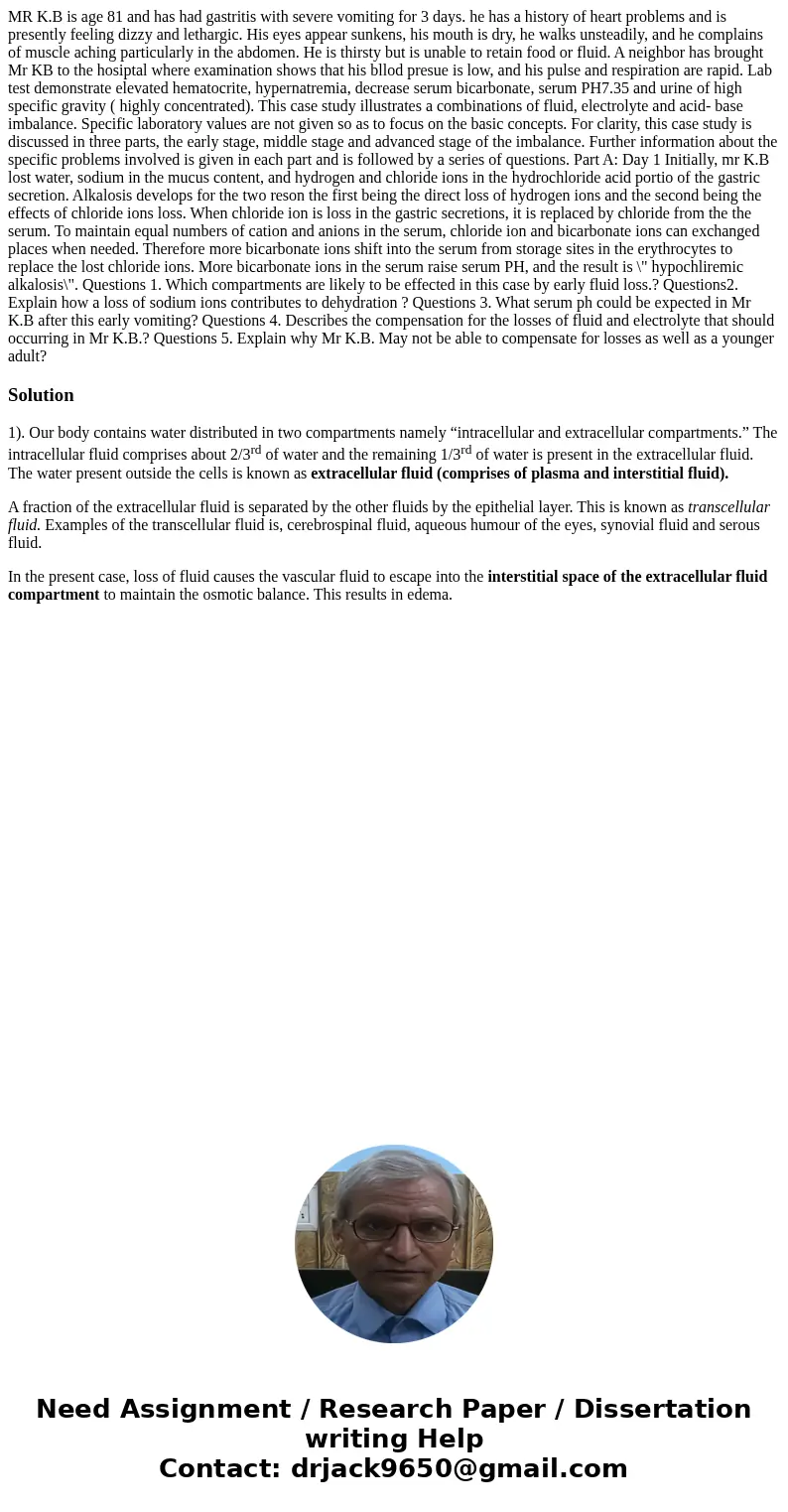MR KB is age 81 and has had gastritis with severe vomiting f
MR K.B is age 81 and has had gastritis with severe vomiting for 3 days. he has a history of heart problems and is presently feeling dizzy and lethargic. His eyes appear sunkens, his mouth is dry, he walks unsteadily, and he complains of muscle aching particularly in the abdomen. He is thirsty but is unable to retain food or fluid. A neighbor has brought Mr KB to the hosiptal where examination shows that his bllod presue is low, and his pulse and respiration are rapid. Lab test demonstrate elevated hematocrite, hypernatremia, decrease serum bicarbonate, serum PH7.35 and urine of high specific gravity ( highly concentrated). This case study illustrates a combinations of fluid, electrolyte and acid- base imbalance. Specific laboratory values are not given so as to focus on the basic concepts. For clarity, this case study is discussed in three parts, the early stage, middle stage and advanced stage of the imbalance. Further information about the specific problems involved is given in each part and is followed by a series of questions. Part A: Day 1 Initially, mr K.B lost water, sodium in the mucus content, and hydrogen and chloride ions in the hydrochloride acid portio of the gastric secretion. Alkalosis develops for the two reson the first being the direct loss of hydrogen ions and the second being the effects of chloride ions loss. When chloride ion is loss in the gastric secretions, it is replaced by chloride from the the serum. To maintain equal numbers of cation and anions in the serum, chloride ion and bicarbonate ions can exchanged places when needed. Therefore more bicarbonate ions shift into the serum from storage sites in the erythrocytes to replace the lost chloride ions. More bicarbonate ions in the serum raise serum PH, and the result is \" hypochliremic alkalosis\". Questions 1. Which compartments are likely to be effected in this case by early fluid loss.? Questions2. Explain how a loss of sodium ions contributes to dehydration ? Questions 3. What serum ph could be expected in Mr K.B after this early vomiting? Questions 4. Describes the compensation for the losses of fluid and electrolyte that should occurring in Mr K.B.? Questions 5. Explain why Mr K.B. May not be able to compensate for losses as well as a younger adult?
Solution
1). Our body contains water distributed in two compartments namely “intracellular and extracellular compartments.” The intracellular fluid comprises about 2/3rd of water and the remaining 1/3rd of water is present in the extracellular fluid. The water present outside the cells is known as extracellular fluid (comprises of plasma and interstitial fluid).
A fraction of the extracellular fluid is separated by the other fluids by the epithelial layer. This is known as transcellular fluid. Examples of the transcellular fluid is, cerebrospinal fluid, aqueous humour of the eyes, synovial fluid and serous fluid.
In the present case, loss of fluid causes the vascular fluid to escape into the interstitial space of the extracellular fluid compartment to maintain the osmotic balance. This results in edema.

 Homework Sourse
Homework Sourse